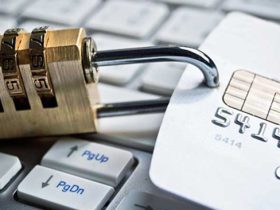In today’s digital age, where trust and security are paramount, blockchain technology has emerged as a game-changer. Originally known as the backbone of cryptocurrencies like Bitcoin, blockchain has evolved into a revolutionary technology with far-reaching implications. It offers the potential to transform various industries by providing secure, transparent, and decentralized systems. In this blog post, we will explore the future of trust and the significance of embracing blockchain technology for building secure and transparent systems.
1. Understanding Blockchain Technology:
Before diving into its future implications, it’s essential to grasp the fundamentals of blockchain technology. At its core, a blockchain is a decentralized and distributed ledger that records transactions or information across multiple nodes. It operates on a consensus mechanism, where each participant in the network validates and verifies transactions. This structure ensures immutability, transparency, and security, making it an ideal candidate for various applications.
2. Enhanced Security and Data Integrity:
One of the key benefits of blockchain technology is its robust security features. The decentralized nature of blockchain makes it resistant to tampering and fraud. Each transaction or data entry is stored in a block, cryptographically linked to the previous block, forming an immutable chain. This immutability enhances the security and integrity of data, making it nearly impossible for malicious actors to alter or manipulate records.
3. Transparency and Accountability:
Blockchain’s transparent nature brings a new level of accountability to systems and processes. As transactions are recorded on a shared ledger visible to all participants, it enables unprecedented transparency. This transparency fosters trust among participants, eliminates the need for intermediaries, and allows for efficient auditing and verification processes. From supply chain management to voting systems, blockchain can provide an auditable trail of transactions, ensuring integrity and accountability.
4. Disrupting Industries and Use Cases:
Blockchain technology has the potential to disrupt various industries, revolutionizing how we interact, transact, and share data. Industries such as finance, healthcare, supply chain, real estate, and identity management are already exploring blockchain solutions to streamline processes, enhance security, and reduce costs. Smart contracts, decentralized finance (DeFi), digital identity, and tokenization of assets are some of the use cases being explored, hinting at the transformative power of blockchain in the near future.
5. Overcoming Challenges and Scalability:
While blockchain holds immense promise, it also faces challenges that need to be addressed for widespread adoption. Scalability, energy consumption, regulatory frameworks, and interoperability are areas that require continuous development and refinement. However, with ongoing research and technological advancements, these challenges can be overcome, paving the way for blockchain to reach its full potential.
6. Collaborative Efforts and Industry Adoption:
To unlock the full benefits of blockchain, collaboration among industry stakeholders, governments, and technology enthusiasts is crucial. Industry consortia and partnerships are forming to create standards, share knowledge, and drive innovation. Governments are exploring regulatory frameworks to foster blockchain adoption while protecting consumer interests. By fostering collaboration and nurturing a supportive ecosystem, blockchain can gain wider acceptance and integration.
Conclusion: As we look to the future, blockchain technology promises to redefine trust, security, and transparency in various domains. Embracing blockchain has the potential to revolutionize systems, enhance efficiency, and empower individuals and businesses with greater control over their data and transactions. By embracing the future of trust through blockchain, we can unlock a new era of secure and transparent systems that shape our digital landscape for the better.


